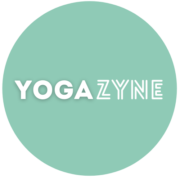Self-help 101

A lot people only swear by self-help books. And it is okay, to start with. Most of them are designed to feel empowering, but for way too many, it is like blowing in a balloon, soon to deflate. Ignoring the tremendous amount of superficial advice and sometimes twisted principles like toxic positivity surrounding self-help culture is, however, not okay. Do you notice the excess responsibility for mental health that is put on individuals nowadays?
Don’t get me wrong, we are responsible for our happiness, but it is never our fault if we feel depressed. Never. We grow up in families, societies and systems which leave deep impressions, influences, conditionings and traumas, forging who we are. Not to mention our genes that determine our chemistry. It might sound like an excuse to simply remain the same, but truth is, it is just a basic principle we need to agree upon in order to go forward. Getting rid of the guilt and shame forever. The second basic principle is that we are always doing our best. Many have high standards, which makes this principle seem unrealistic, but we are not machines. We act according to our level of awareness but also our feelings, and most importantly, our subconscious is leading the dance. So it is actually our best in any given moment.
There is also a huge difference between consuming a book and applying its learnings. Most ideas proliferate in theory, whereas growth calls mainly for action. Of course, expanding our views of the world through books is a stepping stone, and benefiting from others experiences is always helpful. Yet it is not even a small part of the work. Books are probably the most popular and wonderful initiation tool. But after a while, we might realise growth does not operate based on information. It does not matter the amount of knowledge we gather if it is not applied to our lives. There is often a significant gap between what we know and what we do. The worst thing being building a whole paradigm based on theories only to realise they do not survive real life. Another problem is that once we know enough about a subject, we gain excess confidence about our level of understanding and somehow even lose interest, leaving what we learnt to imagination or oblivion.
According to yoga philosophy, true knowledge is the ability to see things as they are, to see the truth behind the illusion of reality. Like for instance, seeing ourselves behind a body and a mind. Coming back to self-help, yoga speaks mainly of internal knowledge. What is that supposed to mean? There is a very short yet infinitely deep popular Greek saying : “Know thyself.”
I am not a therapist, nor a mystic, I am just a person among 7 billion people who has a genuine interest in life. I believe self-help to be a natural ability, that the answers are already within us waiting to be unlocked and nurtured. We are literally harassed to think self-help is somewhere to be found, that it depends on the amount of knowledge we are able to digest and that we need experts to tell us what to do. Of course it is always easier and maybe faster to rely on external help, but it is more likely to be a tricky road than a safe haven.
What if self-help required nothing else than exploring who we are from within? Over the past decade of my existence, nothing has felt more liberating than meditation. I have always been too much in my head, thinking my mind was my best companion. Despite it being a great source of headaches and probably heartaches, I used to think so highly of the human intellect that nothing seemed to hold more value. The mind however, is a knife with two ends, one that feels powerful, and one that hurts. However fascinating a mind can be, the fact remains that it is not a free will paradise, it has its very own life. No wonder most people rely on occupations and distractions to get away from it. But I do not think it is very efficient on the long term to depend on occupations or distractions in order to keep the illusion of sanity. This is where meditation plays its role. It does not aim to suppress the activity of the mind, as many pastimes do. One purpose is to observe the mind, to grasp its true nature, which will immediately dissolve its power over us and more importantly, our identification with it.
Meditation has taught me to stop using my mind as a means to know myself. What does the mind do except use our memory to analyse the present and future? On a lighter note, I have changed so many times in my life that I can see now how insane it was. What does not change however, is the universal question : Why do we exist? And the gut feeling that there is something bigger than us, it does not matter its name, God or the universe or the supreme intelligence, something that keeps us thriving for exploration. So it only makes sense that we explore that feeling from the source, right from the inside. It might appear after all that this feeling was just a way to annihilate death or the nothingness of life, but that is only up to one to conclude.
With love,
Sarah
